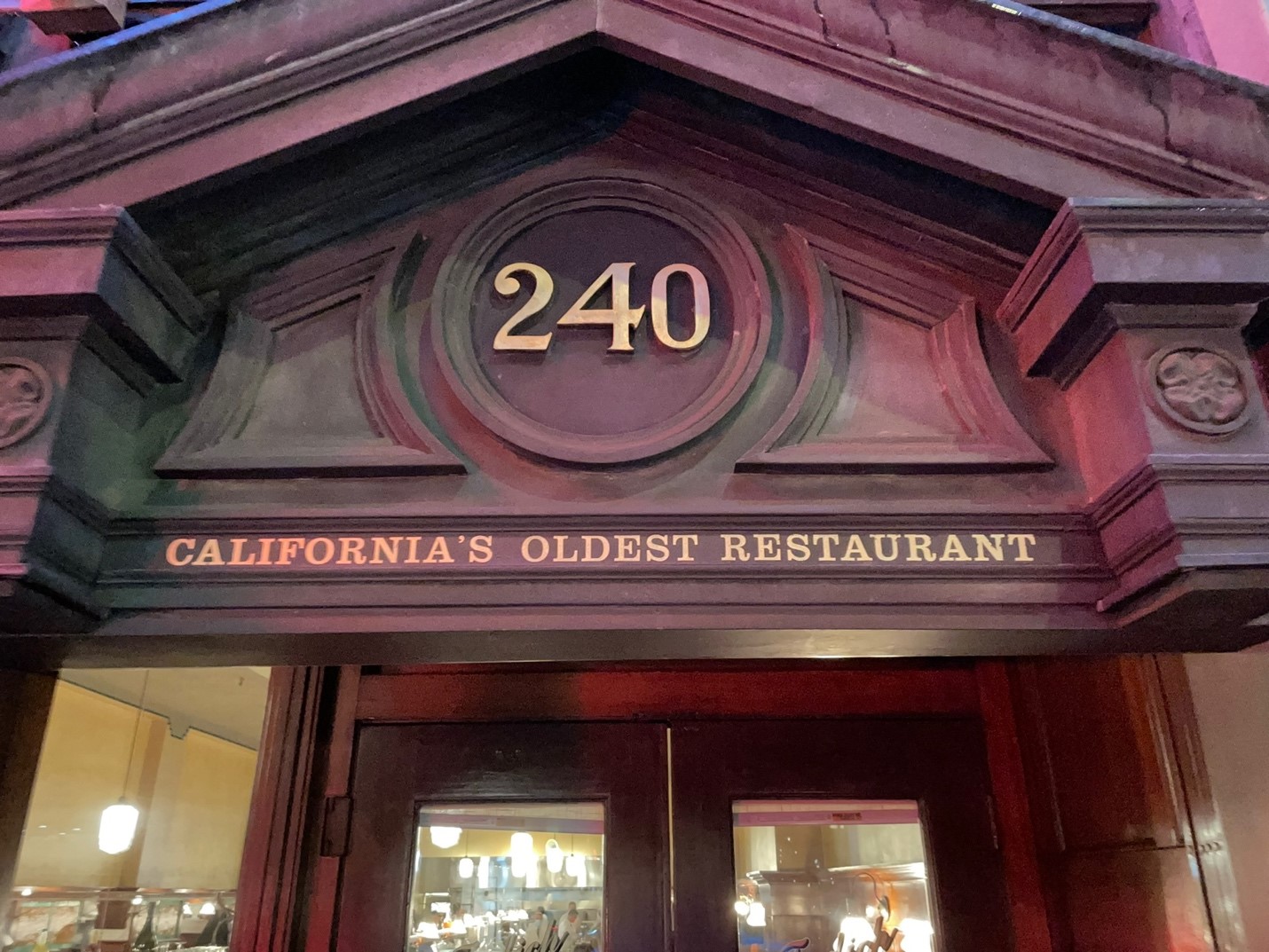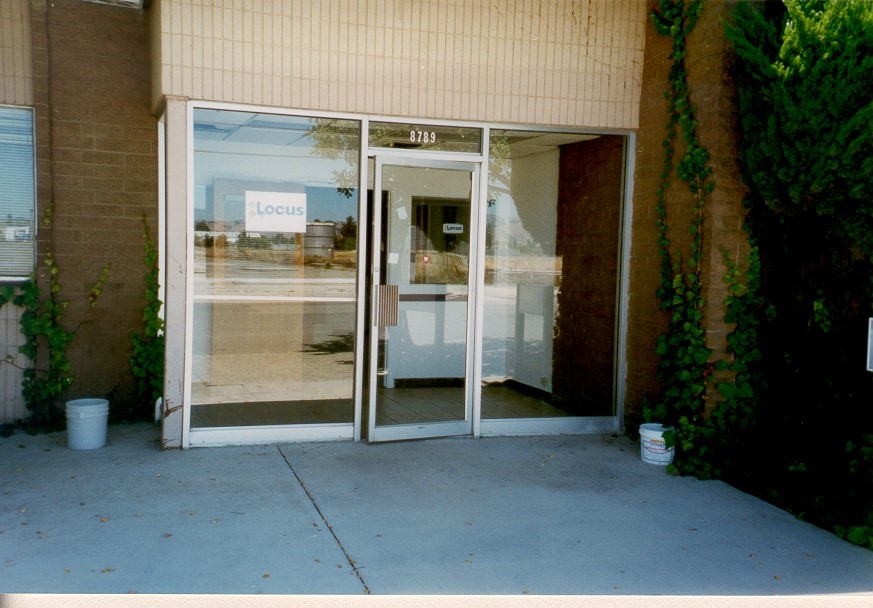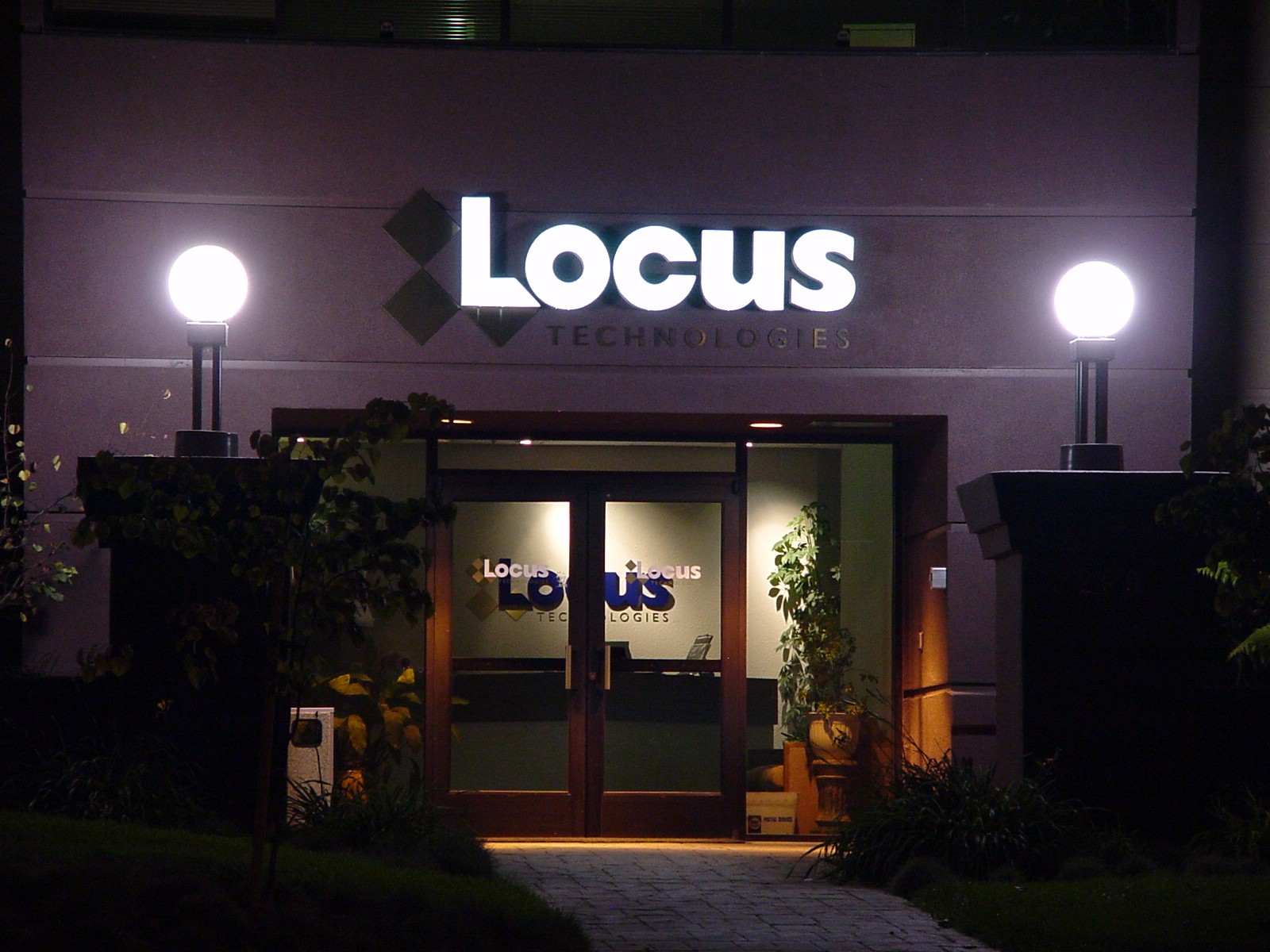Locus has recently improved our help desk support system, with improved visibility and resources for all of our customers.
At Locus, we discuss customer software needs on a daily basis. It is highly unusual that someone wants exactly what we have out-of-the-box. In fact, it almost never happens. Moreover, if we see this daily, most software vendors see this as well. Both LNS Research and NAEM note that customizations can be problematic due to the cost of the software coding effort and the lack of forward compatibility…

I am constantly reminded by the number of calls we receive, that no matter how robust a SCADA and HMI system is, there is always a requirement for in-field O&M verifications and documentation. It’s almost universal and spans a myriad of industries, large and small, the need to monitor and record thousands of periodic (daily/per shift/weekly, etc.) routine readings/recordings at a prescribed frequency often recorded on pen to paper field forms. The same processes sometimes use “template” spreadsheets for data collection that are then emailed/placed on shared file servers or otherwise sent to some central location for review and post-processing. These processes are antiquated and subject to data quality and record-keeping challenges.
It’s time for an upgrade!
Electronic forms are great for collecting data and almost every business entity has built such forms in spreadsheets, word processing, or simple databases to collect the information. In addition, there is a software category of form builders, and they can certainly build forms. The question becomes is it a good fit to solve your business process issues?
Most customers have more sophisticated needs than simply collecting information on one or more custom forms – they want to do something with all the information collected far beyond what simple form builder tools can provide. Even customers with sophisticated spreadsheet forms, can’t manage them as they multiply exponentially or their Excel gurus retire.
Here are some examples of where you may require software tools beyond a simple form builder:
- Collecting equipment readings on each shift at multiple locations and reporting the data to centralized management, who review the data, and look for trends/issues.
- Verifying and validating data at the point of data entry to eliminate data entry errors.
- Automatically visualizing (charts or tables) information in near real-time to make operations decisions.
- Sharing the information with others.
- Scheduling activities related to periodic or infrequent data collection events.
- Receiving notifications when actions are due.
- Automatically creating regulatory reports in prescribed formats.
- Creating complex workflows and audited approval processes.
- Creating intelligent forms with calculations based on past data or other criteria.
Locus Platform is a configurable platform with standard applications that are easy to configure to customers’ unique requirements. One of its many strengths is its powerful form builder capable of creating simple or complex forms with simple or sophisticated logic. So, for customers looking to move from paper and spreadsheet templates, it’s an excellent option to consider, especially if you require more than a simple “fill in the blank” form for transmittal using mobile devices. Best of all, the data are securely stored in a database structure for reporting and alternative business uses and analyses, compared to the almost impossible management of hundreds of spreadsheets or paper forms.
Here are some examples where sophisticated forms are integrated with a flexible database:
- Water Utilities – Tracking chlorination and aerobic digestion processes with daily inputs/outputs with a monthly summary and chart and tracking well production across well fields.
- Water Utilities – Tracking periodic sewer discharges and water samples for permit compliance.
- Agriculture – Monitoring food processing equipment for compliance with optimum equipment opeating parameters for air permits.
- Pharmaceutical/Chemical Manufacturing Facilities – Tracking EHS daily, weekly, monthly, etc. investigations and in-house audits.
- Universities – tracking chemical inventories.
- Facility Engineering – Documenting O&M activities for groundwater treatment systems.
- Electric Utilities – Monitoring water/energy/gas usage from old-style meters for sustainability reporting with data entry validation.
- Refineries and Terminals – Collecting O&M, usage, and wastewater data.
If you still rely on paper forms and template spreadsheets and are ready to streamline your process and enhance the value of your data, give us a call and we can show you a range of options that will retire the paper forms for good!
Want to learn more about Locus Software Solutions? Reach out to our product specialists today!
[sc_vimeo width=”640″ height=”360″ aspect_ratio=”16:9″ video_id=”827408894″ style=”default” position=”right”]
While we now have easy-to-use tools for creating applications, you still need to define what you want to get out of the application you’re making. When you buy pre-configured software, you adapt your process to fit the constraints of the system you just bought. When you buy configurable software, you’re able to create the exact workflow that you need, but you have to first develop a complete understanding of what your needs actually are.
With flexible tools, it’s easy to try out different configurations with your team members. In this short video Director of Sales Engineering, Steve Paff, highlights Locus Software’s configurable hierarchy and how versatile it can be for you.
For more information, click here:
[sc_button link=”https://www.locustec.com/blog/configurable-software-solutions-change-good-right/” text=”Learn more” link_target=”_self” color=”000000″ background_color=”52a6ea”]
Request a demo
Send us your contact information and a Locus representative will be in touch to discuss your organization’s needs and provide an estimate, or set up a free demo of our enterprise environmental software solutions.
Foster Farms Selects Locus Technologies EHS/ESG Enterprise SaaS
MOUNTAIN VIEW, Calif., May 2, 2023 — Locus Technologies, the leading EHS Compliance and ESG software provider, today announced that Foster Farms, a top US provider of fresh, frozen, and prepared poultry products and the leading brand of fresh chicken in the Western U.S., selected Locus’s award-winning enterprise Software as a Service (SaaS) to organize and manage their EHS compliance and ESG reporting.
Foster Farm subscribed to an integrated set of apps offered in the Locus Cloud Platform. Some apps include EHS Compliance Management, ESG and Sustainability, GHG Emission Factor and Calculation Management, Inspections, Configuration Workbench, Air Emissions Management, Storm Water, Wastewater, and well data management and reporting.
Locus Cloud is the first fully integrated multitenant platform created from the ground up to allow organizations to manage their environmental, energy, water, waste, carbon, air, health and safety, remediation, water quality, and compliance information in one place. The Locus Platform allows companies to configure their own management, tracking, visualization, and reporting through a graphically driven user interface. This feature enables organizations to configure the software to their needs without worrying about the expensive programming outlays usually associated with customization and single-tenant deployments.
When designing integrated EHS/ESG SaaS, Locus sought to make the complicated workflow and management of environmental data as simple as possible and to make it manageable from a single platform with shared components. The resulting platform offers immense flexibility and endless capabilities with minimal training thanks to the new, intuitive, user-friendly interface design.
“The accurate tracking and reporting of critical environmental resource usage is a necessary part of our compliance responsibilities, and a major component of our efforts to ensure that we are a sustainable producer. The Locus application software will make a significant contribution to our resource management capabilities,” said Don Hill, Foster Farms Director of Environmental Affairs.
“We are delighted that Foster Farms recognized the power of the Locus Cloud platform. Businesses do not want to shop for point solutions from different vendors only to be left with the nightmare of integration, security, synchronization, and vendor management. They want one-stop shops and to avoid having to deal with vendors that don’t integrate well with one another or have spotty service and limited support. Locus will provide Foster Farms single platform through which they can accomplish all their environmental and compliance management needs on a single, fully customer-configurable platform,” said Neno Duplan, President, and CEO of Locus. “Keeping the end user’s perspective in mind, we’ve packed the same 26-plus years of domain expertise that Locus has been offering all along into a highly configurable and scalable software platform built from the ground up on the latest web technologies,” remarked Duplan.
ABOUT FOSTER FARMS
Foster Farms is dedicated to providing families across America with great food. From ready to cook chicken and turkey, to chicken nuggets and corndogs, Foster Farms portfolio of fresh, frozen, and prepared foods, are always welcome whether it’s dinner time or snack time. Since its founding in 1939 Foster Farms has gone on to become one of the largest quality poultry producers in the United States. Headquartered in Livingston, Ca with facilities in California, Oregon, Washington, Colorado, Arkansas, Alabama and Louisiana, the company has nearly 12,000 Team Members, and is committed to building a “culture that nobody wants to walk aways from.”
For the last 25 years, Locus has synthesized knowledge of environmental science with a vision for effectively gathering, aggregating, visualizing, and analyzing emissions of all sorts and environmental data. This work aims to help organizations marshal their environmental data to manage better and, where possible, reduce their environmental footprints.
This approach has differed from many other environmental software startups that have come and gone in the past ten years. Locus’ distinction comes from harnessing the true multitenant Cloud and a unique perspective on how to address the complex issues of environmental information management. Cloud technology offers Locus customers numerous advantages: Improved data collection,
aggregation, visualization, business analytics, and analysis, and the cost reduction inherent in web-based software all translate into a competitive advantage and increased customer profitability.
So, rather than “one software solution per problem,” Locus has built an enterprise-scale software solution tailored to meet all customer’s needs in a single SaaS platform. This approach eliminates redundancy and incompatibility issues with other enterprise-management systems, giving organizations unprecedented control over their data. As the industry evolves and new markets continue to grow, Locus is positioned to grow with them, staying at the forefront of environmental and sustainability information management and promoting a vision of collaborative global stewardship.
And that global stewardship is where Locus would like to see environmental data management have a more significant impact on policy, mitigation efforts, and understanding the complete picture of how human activities affect the planet.
Locus is not just selling software to address an evolving regulatory landscape (which is why most customers are looking for environmental compliance software) but also because there is an underlying urgency to tackle what the Locus team views—along with many other scientists—as a climate and environmental crisis. The 21st century’s environmental challenges include shortages of drinkable water; the impact of various pollutants that enter our atmosphere; the strains of our ever-increasing population on limited resources and threatened ecosystems; and climate change causing extreme weather conditions that push more and more the world’s population into precariousness.
We need a collective and holistic understanding of the problems we face. The only way to understand the whole picture and act meaningfully globally is for all of us to share the data we gather about our activities. It’s impossible to mitigate the risks and effects of our actions on the planet when we don’t have the data to characterize the problem and see a complete picture of what we face.
This complete picture will require us to monitor and collect an unprecedented quantity of data, and it’s with this massive data explosion, Locus’s vision comes into play. To achieve this end, organizations in the private and public sectors will need to track and upload their environmental data; subsequently, these data need to be made available through an interconnected database for environmental data management so that scientists and others can collectively view the results of our activities and act on a grander scale.
Getting to the point of sharing all of these data is an important stretch goal right now, but it’s the direction Locus hopes to see environmental data management move in the future. In the meantime, Locus is working to support organizations of all sizes to gather their data, understand it better, and act on their analyses to improve their environmental footprints.
This is the seventh post highlighting the evolution of Locus Technologies over the past 25 years. The previous post can be found here. This series continues with Locus at 25 Years: Climate Change Software, A Generational Opportunity.
On 11 April 1997, Neno Duplan and a few colleagues gathered in an attorney’s office at One Front Street downtown San Francisco to begin the Locus journey. Over the next 25 years, these founders and many who later joined them would build a company based on three breakthrough goals: in place of client-server and silo systems, offer organizations cloud-based software and applications to manage their environmental compliance; create a subscription business model, and build an integrated model for emissions and environmental information management. Through these ideas, Locus would come to revolutionize the EHS compliance and sustainability industries.

Figure 1: One Front Street, San Francisco Ca where Locus was founded in 1997
After a lunch at the California’s oldest restaurant nearby, Tadich Grill, Locus was off to the great start.

Figure 2: California’s oldest restaurant at California Street

Figure 3: Tadich Grill, California’s oldest restaurant was founded in 1849 by three Croatian immigrants.
Twenty-five years later, Locus continues that revolution, offering integrated EHS and ESG software in the cloud, mobile, IoT, and AI technologies for companies of every size and industry. Locus has changed how companies manage their environmental liability and emissions and, at the same time, improved companies’ means to manage their impacts on the climate and environment. On this 25th birthday, we want to thank our employees and customers who entrusted us with their data. We couldn’t have done any of this without you.

Figure 4: Locus’s first office in Newark, CA
Who is Locus?
We founded Locus with the vision to create a robust online environmental data management and compliance software system to handle the volume and the complexities of environmental data. The company founder and key staff came to Locus with dozens of years of consultant-based environmental data management and compliance experience and with first-hand knowledge of the difficulties and frustrations of homegrown solutions involving spreadsheets and siloed custom software.
Locus is a leading provider of EHS compliance and ESG software and technology-enabled solutions that address a broad range of risk categories across diversified end-markets.
Locus is the only provider of scale with an extensive offering unifying EHS, ESG, and Water solutions and is rapidly expanding $7bn+ addressable market opportunity with significant white space and supported by strong industry tailwinds.
Locus sits at the center of a powerful network, connecting EHS and ESG with technology needs to scale sustainable supply chains
Debuting in 1999, Locus Environmental Information Management (EIM) was the first exclusively online Software as a Service (SaaS) environmental data management system. Since then, it has been in continuous operation and has been continuously upgraded, improved, and enhanced based on technology changes and customer requests. Locus EIM was the first time a large enterprise could purchase a commercially supported system to streamline and manage the entire environmental data management process without needing to buy any hardware or install any software on-premises.

Figure 5: Locus Silicon Valley Headquarters, Mountain View, CA
Following the early success of EIM, in 2000, Locus created the first EHS compliance portal, later named Locus Platform (LP), to house different apps and less structured data such as documents, site information, and obligation and compliance information. This platform evolved over the years into a robust full-blown EHS compliance management tool with many applications. Locus completely rebuilt LP in 2013 using the latest web technologies to provide the EHS industry with the first multitenant solution for EHS compliance management. In its current form, LP offers an intuitive interface with the immense flexibility to incorporate features such as drag-and-drop forms creation, visual business-process modeling, Excel import/export integration, and rich and configurable user dashboards and reporting interface. Locus created every feature with the end-user to promote quick and easy data capture and task management.
The central focus of EIM is the environmental sample and what it tells us about environmental conditions at a site. It is a vertical application designed to store location, sampling, and analytical information. We often refer to EIM as an inch wide and a mile deep. Companies use EIM to store, evaluate, and report contaminants found in the groundwater, surface water, soil, sediments, air, and biota at a site or facility. It is typically the tool of choice for an organization monitoring emissions or study of a potentially contaminated area. In recent years, a version of it has been modified to serve the needs of water utilities for water quality management.
Most data in EIM originates from analytical laboratories, field readings, instrument readings, and consumption meters. Many such data points are transmitted to EIM via IoT technologies. EIM users generally understand sampling protocols, analytical chemistry, water quality, air emissions, sample management, geology, and other technical fields.
In contrast, LP is an expert solution that houses many compliance and task management applications. Its users generally are in oversight or supervisory positions responsible for compliance and task management. LP consumes verified data from EIM to build and report compliance apps. Its tools and flexibility support a full-featured and unified set of Environmental Health & Safety, and sustainability solutions in a single platform.
Today, Locus is an environmental software and service company with headquarters located in Silicon Valley. Our vision of a cloud-based system for accessing and managing environmental data and EHS compliance has now been widely adopted by many companies and industrial sectors and is a technology known to all as Software as a Service (SaaS).
Locus is mainly responsible for creating an emerging technology sector in its niche-storing and managing environmental and sustainability industry data using Cloud Computing. Via its SaaS, Locus is now a leading EHS and ESG SaaS provider and outpaces its competitors in environmental data tracking and compliance management applications.
Locus didn’t start in the clouds, but back in 1997, it had a pretty good view of the road it wanted to head down. Locus evolved from Neno Duplan’s work as a research associate at Carnegie Mellon in the 1980s, where he developed the prototype system for environmental information management and display using microcomputers. This early work led to the development of numerous database management systems at some of the nation’s largest environmental sites and ultimately to the formation of Locus Technologies in 1997.
In Locus’ second anniversary letter on 15 April 1999, Neno Duplan wrote:
In the short term, we will drive revenue growth through geographical expansion and by fully supporting the development of our Internet-based products and services. We plan to use our Internet-based and information management technologies to revolutionize the industry. These new products will keep us competitive and open a world of opportunities for Locus and our clients.
Locus’ vision of providing companies with the tools they need for better global environmental stewardship has not changed since its inception. We focus on empowering organizations to manage and mitigate the environmental impact of their activities. That vision has come to fruition as Locus’ software services are now used by some of the world’s largest companies and government organizations.
This series continues with: Locus at 25 Years with: Locus EIM and the Triumph of the SaaS Model.
Locus Technologies
299 Fairchild Drive
Mountain View, CA 94043
P: +1 (650) 960-1640
F: +1 (415) 360-5889
Locus Technologies provides cloud-based environmental software and mobile solutions for EHS, sustainability management, GHG reporting, water quality management, risk management, and analytical, geologic, and ecologic environmental data management.
